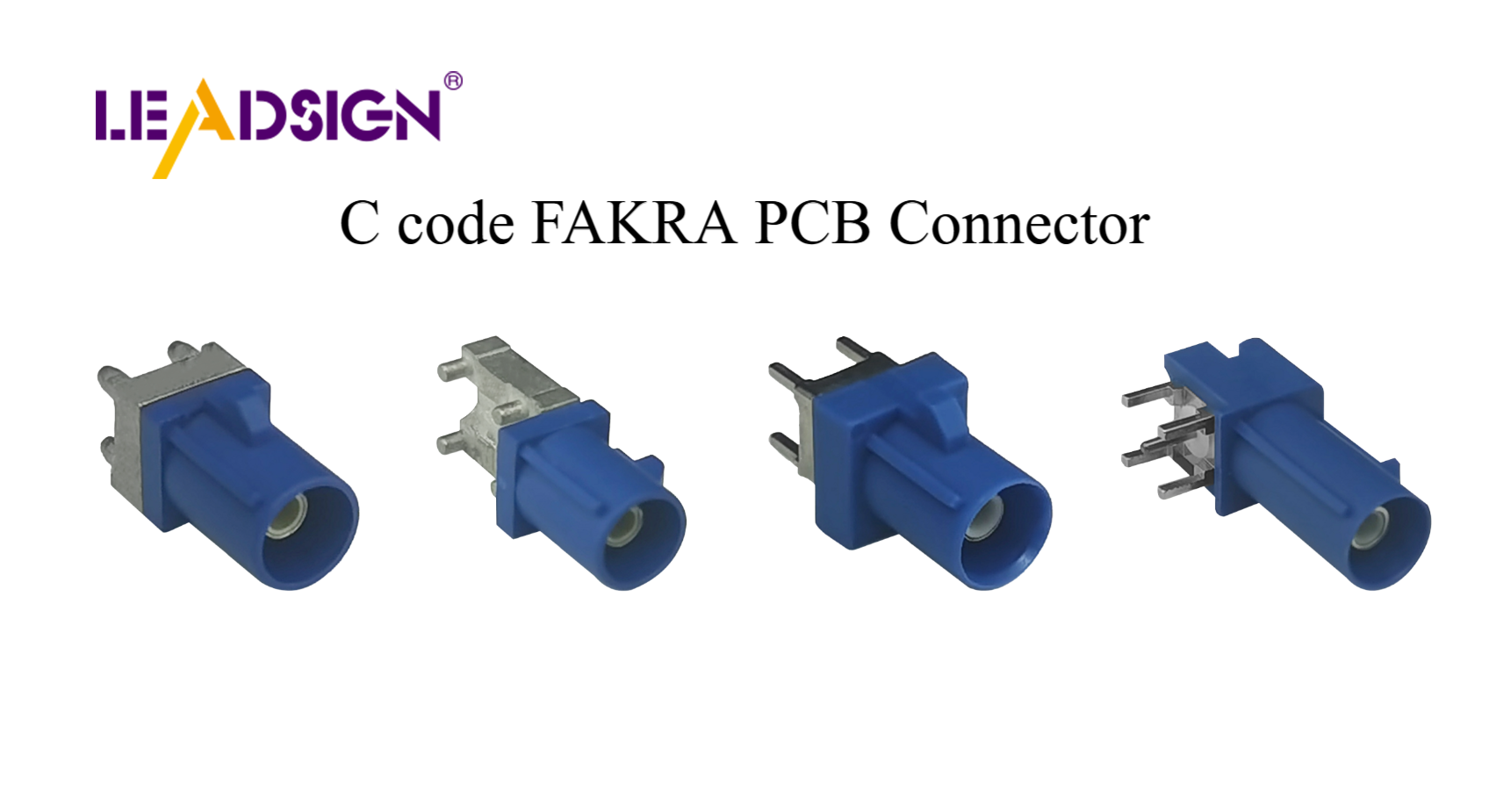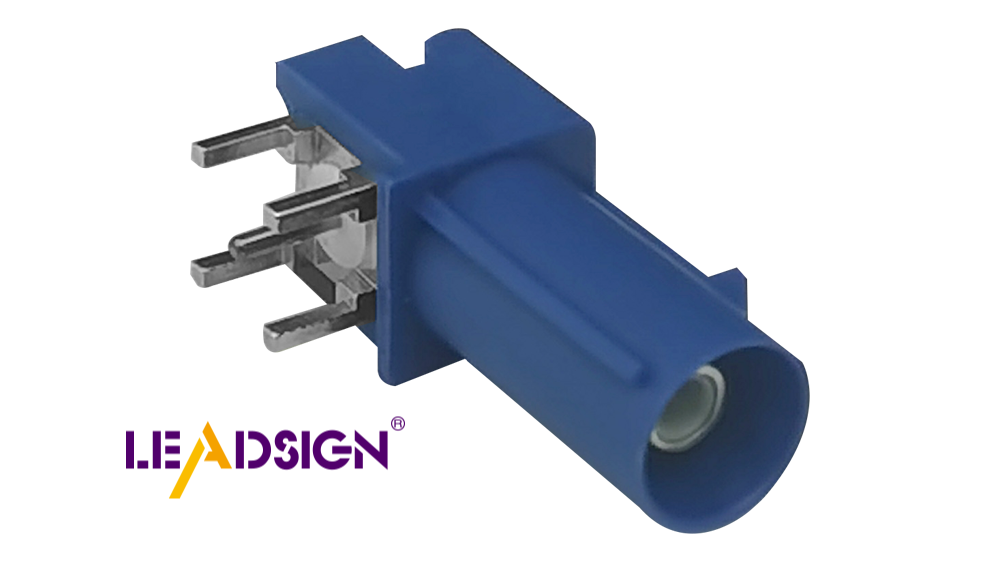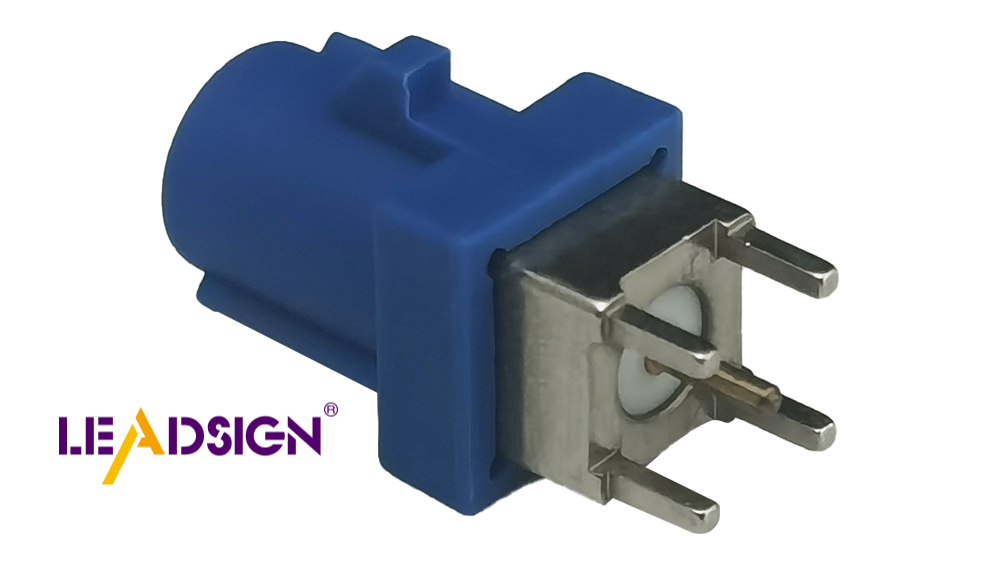Don’t Ignore Automotive Plugs and Connectors Standards

Automotive plugs and connectors are key to your car's electrical system. They help parts like sensors, lights, and controls work together safely. Good automotive plugs and connectors handle tough conditions like heat and shaking in cars. Ignoring their quality can cause electrical problems and safety issues. Research shows connector problems cause 40-50% of electronic failures. This proves how important they are for cars to work well. Picking good automotive plugs and connectors prevents expensive fixes and keeps your car running smoothly.
Key Takeaways
Automotive connectors are essential for the safe and efficient operation of your car's electrical systems, connecting critical components like sensors and lights.
Ignoring the quality of connectors can lead to serious safety hazards, including electrical failures and potential fires, making adherence to standards crucial.
Performance standards, such as ISO and SAE, ensure connectors can withstand extreme conditions like heat, moisture, and vibrations, enhancing their reliability.
Using connectors that meet established standards can save you money on repairs and extend the lifespan of your vehicle's electrical systems.
Choosing certified connectors not only boosts your car's performance but also builds trust in the vehicle's safety and functionality.
Regularly check for connectors with ISO, SAE, or USCAR labels to ensure you are using high-quality, reliable components in your vehicle.
Investing in quality connectors supports advanced automotive technologies, ensuring features like ADAS and infotainment systems operate smoothly.
What Are Automotive Connectors and Why Are They Important?

Definition and Role of Automotive Connectors
Automotive connectors are important parts of a car's electrical system. They connect circuits and systems to share power and data smoothly. These connectors have male (plug) and female (socket) parts that fit tightly. They stay connected even in tough conditions like shaking or heat.
Automotive connectors do more than just link wires. They send signals between sensors, switches, and actuators. For example, pigtail connectors attach wiring harnesses to key parts. This helps systems like engine controls and safety features work properly. Without these connectors, cars would not run well.
Connectors also need to handle extreme conditions. Cars face vibrations, temperature changes, and moisture. To solve this, connectors are made with strong materials like copper or brass. These materials conduct electricity well and resist rust. Locking systems and weatherproof designs make them even more reliable.
Importance of Automotive Connectors in Advanced Technologies
Automotive connectors are crucial for modern car technologies. New systems like Advanced Driver Assistance Systems (ADAS), Electric Vehicles (EVs), and infotainment need strong connectors. These systems depend on smooth communication, which connectors provide.
In EVs, connectors move power from the battery to the motor. This helps the car run smoothly. In ADAS, they connect sensors and cameras for features like lane-keeping and collision alerts. Infotainment systems use connectors for fast data sharing for maps, music, and calls.
Modern connectors are built for these advanced needs. They are small to save space but still work well. Some, like wire connectors, handle high data speeds and resist heat and shaking. These connectors keep your car safe, efficient, and easy to use.
Understanding Performance Standards for Automotive Connectors
What Are Performance Standards?
Definition and purpose of performance standards in the automotive industry
Performance standards set rules for how automotive connectors should work. These rules make sure connectors are safe and reliable. They help manufacturers create connectors that handle tough car conditions daily. Standards focus on things like how well they carry electricity, last long, and resist heat, water, and shaking.
In cars, performance standards are like a quality checklist. They make sure connectors work well in all situations. From powering basic systems to helping advanced tech, standards keep everything running smoothly. Following these rules means you can trust your car's connectors, even in harsh conditions.
How standards like USCAR-20 and ISO are developed and enforced
Groups like SAE and ISO create these important standards. For example, SAE USCAR-20 is a popular rule for testing low-voltage car connectors. It checks everything from design to real-world use, ensuring connectors meet strict guidelines.
Experts from different areas work together to make these rules. They think about real-life problems and new technology when creating them. Once made, manufacturers must test their connectors to meet these rules. This ensures every connector is safe and ready for use in cars.
Why Performance Standards Are Essential
Ensuring safety and preventing electrical failures
Performance standards keep cars safe by stopping electrical problems. Bad connectors can fail, causing system breakdowns or accidents. For example, weak connectors might overheat and start fires. Using connectors that follow standards lowers these risks a lot.
Good connectors also keep key systems like brakes and lights working. This keeps your car safe for you and others on the road.
Enhancing reliability and durability in extreme conditions
Cars face tough weather, from freezing cold to hot summers. Standards make sure connectors survive these conditions without failing. For example, connectors tested under SAE USCAR-20 must handle heat, shaking, and water.
Strong connectors last longer and need less fixing. This is very important for modern cars with complex electrical systems. Choosing connectors that meet standards means they will work well for a long time.
Risks and Consequences of Ignoring Standards

Safety Hazards
Danger of fires, system failures, and accidents
Not following connector standards can cause big safety problems. Bad connectors might not handle electricity well. This can make them overheat and start fires. For example, a weak connector could spark when too much power flows through it. This creates a dangerous situation for the car and people nearby.
Broken connectors can also stop safety systems from working. Systems like airbags and brakes need good connectors to work right. If these systems fail, accidents can happen, putting everyone at risk. Using connectors that meet standards helps avoid these dangers and keeps cars safe.
Risks to people and the car’s condition
Bad connectors can put passengers and other drivers in danger. Faulty connectors might stop lights or signals from working. This makes it harder for others to see or understand your car on the road. It increases the chance of crashes, especially in bad weather or at night.
Poor connectors can also harm the car over time. Electrical problems can damage other parts, leading to expensive repairs. Following standards protects both people and the car’s long-term health.
System Failures and Operational Issues
Problems with car performance and higher repair costs
Cars with bad connectors often have system problems. These issues can stop important parts like power or data systems from working. For example, a bad connector in the engine can make the car act strangely or even stop running.
Frequent problems mean more time and money spent on repairs. This could be avoided by using connectors that follow standards. Good connectors keep the car running smoothly and reduce repair needs.
Trouble with advanced car features
Modern cars use advanced systems like ADAS and infotainment. These need connectors that can handle fast data and complex tasks. Bad connectors might not keep up, causing glitches or failures.
For instance, a weak connector in an ADAS system might block sensor data. This can stop features like lane-keeping or collision alerts from working. Using standard connectors ensures these systems work as they should.
Legal and Compliance Issues
Fines for breaking rules
Not following connector standards can lead to legal trouble. Rules are strict to make sure cars are safe and reliable. Using bad connectors can result in fines, recalls, or bans in some places.
Companies that ignore standards might face lawsuits or penalties. This costs money and delays production. Following rules avoids these problems and keeps cars legal to sell.
Harm to brand image and trust
Ignoring standards can hurt a company’s reputation. People expect cars to be safe and work well. If a car fails because of bad connectors, trust in the brand is lost.
A bad reputation can lower sales and hurt the company long-term. Following standards shows a focus on quality and safety. This builds trust and helps the brand succeed in the market.
Benefits of Following Automotive Connector Standards
Better Performance and Strength
Stronger against heat, shaking, and water
Connectors made to follow rules work well in tough conditions. They can handle high heat, constant shaking, and wet weather without breaking. For example, electric car connectors deal with high power and changing temperatures. Standards make sure these parts stay strong even in hard situations.
By using these connectors, your car's systems will keep working. Whether it's hot or raining, they won't fail. This toughness makes your car more reliable and less likely to have problems.
Lasts longer and needs fewer repairs
Connectors that meet standards are built to last. They use strong materials and go through strict tests to prove their durability. For instance, SAE-approved connectors are checked for wear over time. This means they need fewer fixes and replacements.
Choosing these connectors saves you money on repairs. Their long life keeps your car running well and reduces time spent in the shop.
More Trust and Better Competition
Showing quality and dependability
Following connector rules shows a focus on making good products. Companies that follow these rules create safe and reliable connectors. This makes customers trust their products more.
For example, ISO-approved connectors are tested to meet global standards. This testing builds trust, making people more likely to buy from these companies.
Meeting what buyers want in safety and features
People want cars that are safe and work well. Connectors are key to making this happen. By following rules, companies make connectors that support new tech like smart systems and electric engines.
When you buy a car with these connectors, you get better safety and cool features. This makes driving more enjoyable and builds trust in your car's performance.
Key Standards for Automotive Plugs and Connectors
ISO Standards
Overview of ISO standards relevant to automotive connectors
The International Organization for Standardization (ISO) sets global rules for industries, including cars. These rules make sure automotive connectors are safe and high-quality. They check how well connectors work in real-life conditions. By following ISO rules, companies can make connectors that fit many cars and systems.
ISO rules also help parts from different brands work together. This means connectors can fit into various car systems without problems. For example, ISO-certified connectors can handle fast data transfer, which is needed in modern cars. These rules ensure your car's connectors will work as they should.
Specific requirements for safety, performance, and environmental compliance
ISO rules list clear needs for automotive connectors. These include safety checks to stop electrical problems, tests for steady performance, and proof they can handle tough weather. For example, connectors must pass tests for heat, water, and shaking. This ensures they stay strong in hard conditions.
ISO rules also focus on fast data handling. Modern cars need this for systems like maps and music. Connectors must send large amounts of data quickly. By meeting these needs, ISO-certified connectors help your car's important features work smoothly.
SAE and USCAR Standards
Role of SAE and USCAR in defining automotive connector benchmarks
SAE International and the United States Council for Automotive Research (USCAR) set rules for automotive connectors. These rules solve problems specific to cars. They make sure connectors meet the tough needs of today’s vehicles.
SAE and USCAR rules check things like strength, electrical work, and weather resistance. They give steps for testing connectors in real-world situations. This helps companies make connectors that work well over time.
Examples of standards like USCAR-20 and their applications in testing and certification
One important rule is SAE USCAR-20, which sets strict tests for low-power automotive connectors. It checks their design, how they work, and if they survive tough conditions. Tests include shaking, temperature changes, and electricity flow.
USCAR-20 is also used for certifications. Companies must prove their connectors pass all the tests. This ensures only good-quality connectors are used in cars. Choosing USCAR-20 certified connectors means you can trust their safety and reliability.
FAKRA Connectors as a Case Study
Applications in GPS, infotainment, and RF communication
FAKRA connectors show how rules improve car technology. These connectors are used in systems like GPS, music players, and wireless communication. They send data quickly between parts, making sure your car’s features work well.
For example, FAKRA connectors help GPS by linking the antenna to the system. They also improve music and video systems by sending data fast. In wireless communication, they keep Bluetooth and keyless entry working properly.
Features like secure locking mechanisms, durability, and high-frequency performance
FAKRA connectors are special because they lock tightly, stopping them from coming loose. This keeps them connected even when the car shakes. They are also strong enough to handle heat and water, making them great for cars.
Another important feature is their ability to handle high frequencies. FAKRA connectors work with speeds up to 6 GHz, perfect for fast data needs. Their strong design and rule-following make them a dependable choice for modern cars.
Car plugs and connectors are important for safety and performance. Following rules helps avoid problems like electrical failures and breakdowns. These rules make connectors strong enough for heat and shaking. Using standards like ISO, SAE, and USCAR improves how well they work. It also shows the car is high-quality and trustworthy. Whether you make or use cars, following these rules keeps systems safe and reliable.
FAQ
What do automotive connectors do?
Automotive connectors join electrical parts in your car. They send power and information between things like lights, sensors, and controls. These connectors help your car's systems work well together.
Why are standards important for automotive connectors?
Standards make sure connectors are safe and reliable. They check if connectors can handle heat, shaking, and wet conditions. Standards also stop electrical problems and make car systems last longer.
How can I tell if a connector meets standards?
Look for labels like ISO, SAE, or USCAR on the connector. These show it passed tests for safety and strength. Always pick connectors with these labels for good quality.
What happens if I use bad connectors?
Bad connectors can cause electrical problems or even fires. They might break your car’s systems and cost more to fix. Always use connectors that meet safety rules to avoid these issues.
Are FAKRA connectors good for modern cars?
Yes, FAKRA connectors work well in modern cars. They handle GPS, music systems, and wireless features. Their strong locks and tough design make them great for advanced car tech.
Can connectors handle bad weather?
Yes, good connectors are made for tough weather. They can survive heat, water, and shaking. Rules like SAE USCAR-20 make sure they work in hard conditions.
How do I pick the right connector?
Think about what you need the connector for. Check its labels, materials, and how well it works. For high-tech systems, choose connectors made for fast data and strength.
Why are locking systems important in connectors?
Locks keep connectors from coming loose when the car moves. They stop power and data from cutting off. This keeps your car’s systems working without problems.
Do connectors need care?
Connectors don’t need much care but check them sometimes. Look for rust, damage, or wear. Replace bad ones quickly to keep your car running well.
Why trust connectors with ISO or SAE labels?
ISO and SAE labels mean the connector passed strict tests. These tests check for safety, quality, and performance. Picking certified connectors means they are reliable and safe to use.
See Also
Why Fakra Connectors Matter For Today's Vehicles
Significance of FAKRA Connectors in Car Technologies
Fakra Connectors: Essential Components in Automotive Sector

